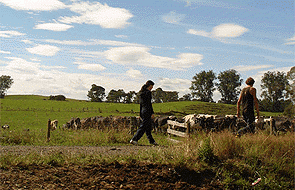

Farming and livestock are an important part of New Zealand and its economy.
There are a number of significant pieces of legislation and Accounting principles to consider when managing your farming business in relation to livestock and associated taxation.
In recent years there have been significant changes in livestock accounting rules which we highlight below in particular relating to Dairy Cattle
Valuation methods - which option?
For many years farmers have been able to value livestock under methods such as; Market Value, Self Assessed Cost, National Standard Cost (NSC) and National Average Market Vales (Herd).
In broad terms there are two main options being the NSC and Herd.
The Herd option treats the livestock as a capital asset with tax assessed on any change in livestock numbers, or when livestock is sold at a value different to the IRD’s annually published Herd Value.
The main alternative, NSC Value, treats the stock as a trading item with tax paid on any change in the calculated values between the years. Sale of the herd when on NSC will lead to far higher taxation at the time of sale compared to the Herd Scheme
There used to be options to change between the systems with planning, however the Government now restrict movement to one direction, with no option to depart form the Herd scheme once used. Careful consideration is needed on what option to use, and when to move onto a particular valuation option.
Further there are different ways to complete the NSC Scheme calculation based on the accounting principles of Weighted Average Cost (WAC) or First in First Out (FIFO), your accountant will have tools to calculate these.
Timing of tax
When purchasing livestock from non related parties there are potential timing advantages on taxation depending on which valuation method you use.
As an example many clients who purchase a new Herd take the option to use the NSC method to delay tax to future years when they can afford it, or when the tax cost may be less.
Alternatively when clients are planning to sell the bulk of their herd, we plan to ensure Livestock are on herd values to better manage taxation on sale, spreading the tax burden.
Livestock elections
There are number of formal elections required when valuing Livestock, or making changes, you need to ensure that your elections are keep up to date so that your accounting records and the IRD records are in sync.
Leasing
Additional rules are in place for livestock that are leased, including leases to a related entity.
If you are considering leasing livestock you need to plan for the tax consequences of a potential taxable write up of your livestock to market values
Livestock transfers between family or related entities
Under new rules when selling your livestock to your family, or another entity you control, you need to discuss with your advisor the tax consequences.
When your livestock is valued on the herd scheme, in the majority of situations transfer to family will be deemed at Herd Values. This will cause a tax treatment in the financial statements different to the value agreed between the family members.
There are limited exemptions to the deemed transfer at Herd values if planned for in advance, mainly requiring the Vendor to cease all livestock farming for four years.
Ceasing livestock farming
If you cease livestock farming, and sell all your Herd Scheme Livestock within six months after your balance date, you are deemed to use the previous years Herd value, where as if the livestock is sold after six months of your Balance date, you are required to use the following years Herd Scheme value.
Therefore you should consider swings in the Herd Schemes values relative to your sale date when ceasing livestock farming
Future changes
The Inland Revenue Department are combining the Jersey and Friesian Herd values in the up coming year which will make stock reconciliations easier but could influence the Herd scheme values.
The Inland Revenue Department have also identified inconsistencies in the method of calculation of National Standard Costs (NSC) values. These inconsistencies are being rectified which will lead to an increase in the NSC values going forward, and therefore lead to taxable income for farmers using the NSC values created by change of IRD policy.
In conclusion, there are many factors to consider when accounting for your livestock in your farming business and careful discussion with your advisor is needed.
----------------------------------------------------------
Grant Eddy is a director at CooperAitken Ltd, accountants in Morrinsville and Matamata. You can contact him here
We welcome your comments below. If you are not already registered, please register to comment
Remember we welcome robust, respectful and insightful debate. We don't welcome abusive or defamatory comments and will de-register those repeatedly making such comments. Our current comment policy is here.